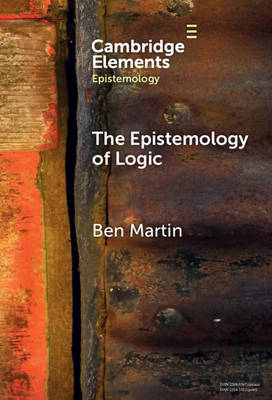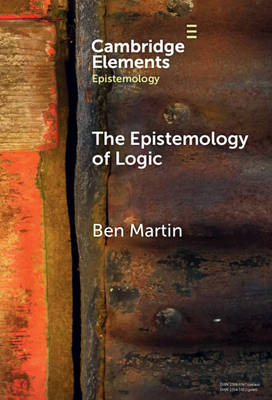
- Afhalen na 1 uur in een winkel met voorraad
- Gratis thuislevering in België vanaf € 30
- Ruim aanbod met 7 miljoen producten
- Afhalen na 1 uur in een winkel met voorraad
- Gratis thuislevering in België vanaf € 30
- Ruim aanbod met 7 miljoen producten
Zoeken
€ 112,95
+ 225 punten
Uitvoering
Omschrijving
Compared to our appreciation of the epistemology of the sciences and mathematics, we have a relatively poor understanding of the epistemology of logic. This Element highlights three causes of this lack of progress: (i) failure to distinguish between the epistemology of logical theorising and that of good (logical) reasoning; (ii) hesitancy to base epistemology of logic on how logicians actually justify their logics, rather than our own presumptions about logic; and (iii) a presumption that the epistemology of logic must be significantly different to other research areas, such as the recognised sciences. The Element ends by highlighting what can be achieved by avoiding these pitfalls, presenting an account of theory-choice in logic, logical predictivism, motivated by actual logical practice, which suggests that the mechanisms of theory-choice in logic are not that different to those in the recognised sciences. This title is also available as Open Access on Cambridge Core.
Specificaties
Betrokkenen
- Auteur(s):
- Uitgeverij:
Inhoud
- Aantal bladzijden:
- 80
- Taal:
- Engels
- Reeks:
Eigenschappen
- Productcode (EAN):
- 9781009598408
- Verschijningsdatum:
- 23/10/2025
- Uitvoering:
- Hardcover
- Formaat:
- Genaaid
- Afmetingen:
- 152 mm x 229 mm
- Gewicht:
- 281 g

Alleen bij Standaard Boekhandel
+ 225 punten op je klantenkaart van Standaard Boekhandel
Beoordelingen
We publiceren alleen reviews die voldoen aan de voorwaarden voor reviews. Bekijk onze voorwaarden voor reviews.







